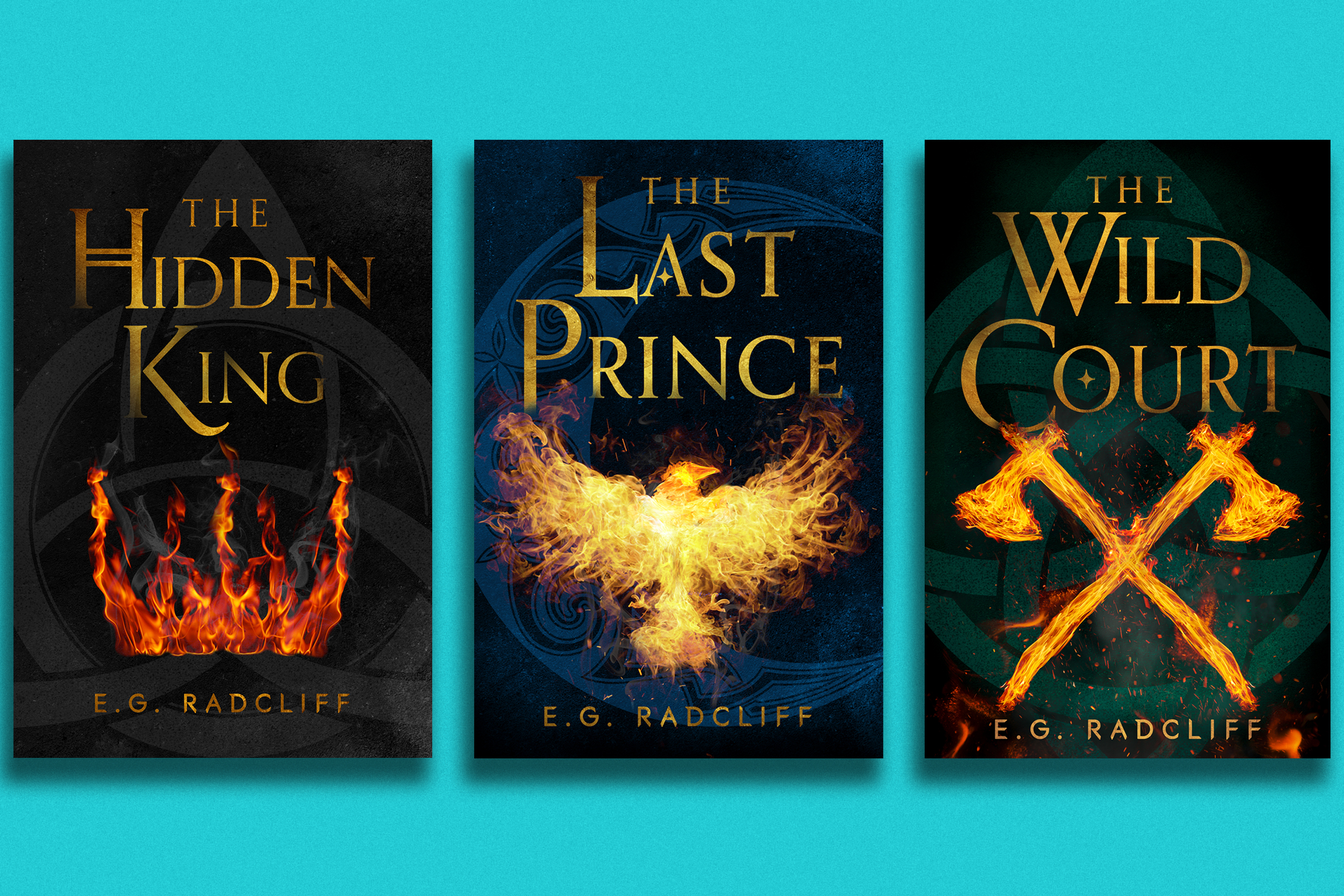University of Virginia third-year student E.G. Radcliff knew she liked storytelling long before she could even read or write. When she was 4 years old, she dictated stories to her father, who patiently wrote them down.
By the time Radcliff was in elementary school, she was turning simple homework assignments into epic tales, complete with heroes and supernatural forces.
What truly opened her eyes – at least as it pertained to character development – were the Hobbits from “The Lord of the Rings” fantasy novel, Frodo and Sam Gamgee.
“It got me studying the real world to see how people worked in concert with each other, and I came to understand real truths even as I learned to represent unreality all the better,” Radcliff said. “It was a delightful, crucial part of my formation.”
In 2019, Radcliff published her first book, “The Hidden King,” the first of a fantasy trilogy called “The Coming of Áed,” which has also included “The Last Prince” (2020) and “The Wild Court” (2021). The three books have been downloaded from Amazon by Kindle eBook readers nearly 12,000 times to date, and have sold more than 400 paperbacks.
UVA Today caught up with Radcliff – a history major from Elmhurst, Illinois, who is a member of the University Singers and also plays on the women’s club water polo team – to learn more.
Q. Do you remember what books you really enjoyed when you were a kid? And then, were there specific genres you were attracted to as you grew older?
A. As a kid, I loved anything that was weird enough to get me thinking – even then, I preferred the genres that ventured a bit beyond reality. I read and re-read “The Phantom Tollbooth,” which to this day I’ll attest as one of the greatest works of children’s literature ever to be written, and as I grew up, I discovered a growing interest in fantasy. I loved Brandon Mull’s “Beyonders” series, and naturally anything by Rick Riordan. I also have a very fond half-memory of a book called “Dragon Slippers,” which I found stuffed in the bookshelf of my sixth-grade homeroom.
I never escaped the lure of the genre; to this day, it’s the vast majority of books on my shelf.












